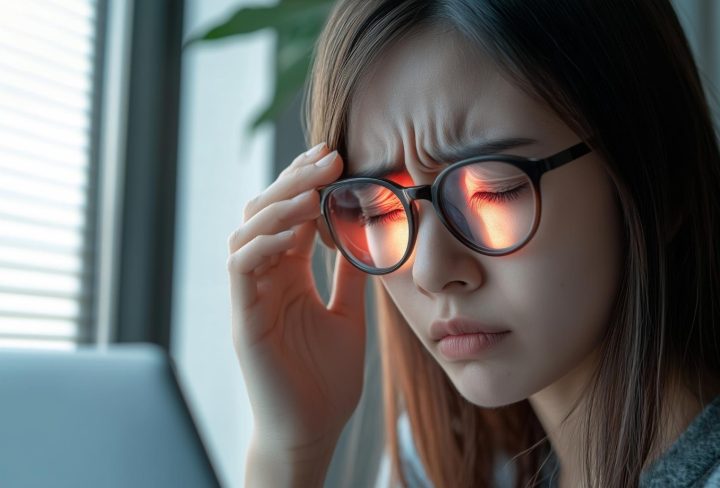Stress and anxiety can have far-reaching effects on the body, including your vision. While we often associate stress with emotional or mental symptoms, it’s important to recognize that prolonged stress can also impact your eyes and overall visual health. This blog will explore how stress and anxiety affect vision, what symptoms to look out for, and how to protect your eyes from stress-related issues.
Can Stress and Anxiety Really Affect Vision?
Yes, stress and anxiety can have a significant impact on your vision. When you’re stressed, your body releases hormones like adrenaline, which can affect your eye muscles and disrupt your visual focus. Prolonged stress can also increase pressure inside the eye, potentially leading to conditions like glaucoma or worsening existing eye issues. While these symptoms are often temporary, chronic stress can have lasting effects on eye health.
What Are the Common Vision Symptoms of Stress?
When stress and anxiety affect your vision, you may experience the following symptoms:
- Blurry vision: Difficulty focusing or seeing clearly.
- Eye strain: Feeling pressure or tension in or around the eyes.
- Light sensitivity: Increased discomfort in bright light.
- Headaches: Stress-related headaches can affect vision, especially if accompanied by eye strain.
If you experience these symptoms frequently, it’s important to your doctor to ensure there are no underlying conditions contributing to your vision issues.
How Does Stress Affect Eye Pressure?
Stress can increase your blood pressure, which may lead to elevated intraocular pressure (the pressure inside your eyes). Over time, high eye pressure can contribute to the development or worsening of conditions like **glaucoma**, which damages the optic nerve and can lead to vision loss. Managing stress through relaxation techniques and regular eye check-ups can help protect your eyes.
Can Anxiety Cause Vision Disturbances?
Yes, anxiety can cause temporary vision disturbances. During anxiety or panic attacks, the body’s “fight or flight” response triggers changes in your vision, such as tunnel vision or sensitivity to light. These disturbances are often related to hyperventilation or rapid changes in blood flow to the eyes. While these symptoms typically resolve after the anxiety subsides, chronic anxiety may require further evaluation.
What Can I Do to Protect My Eyes from Stress-Related Damage?
- Practice stress management techniques: Engage in relaxation exercises such as deep breathing, meditation, or yoga to reduce stress levels.
- Take breaks from screens: Frequent use of digital devices can strain your eyes, especially when you’re stressed. Follow the 20-20-20 rule: look at something 20 feet away for 20 seconds every 20 minutes.
- Stay hydrated and rest: Ensure you’re drinking plenty of water and getting adequate sleep to prevent eye fatigue.
Stress and anxiety can have a surprising impact on your vision, causing symptoms like blurry vision, eye strain, and even increased eye pressure. Managing stress through relaxation, taking breaks, and regular eye check-ups are essential steps to protect your eye health.


